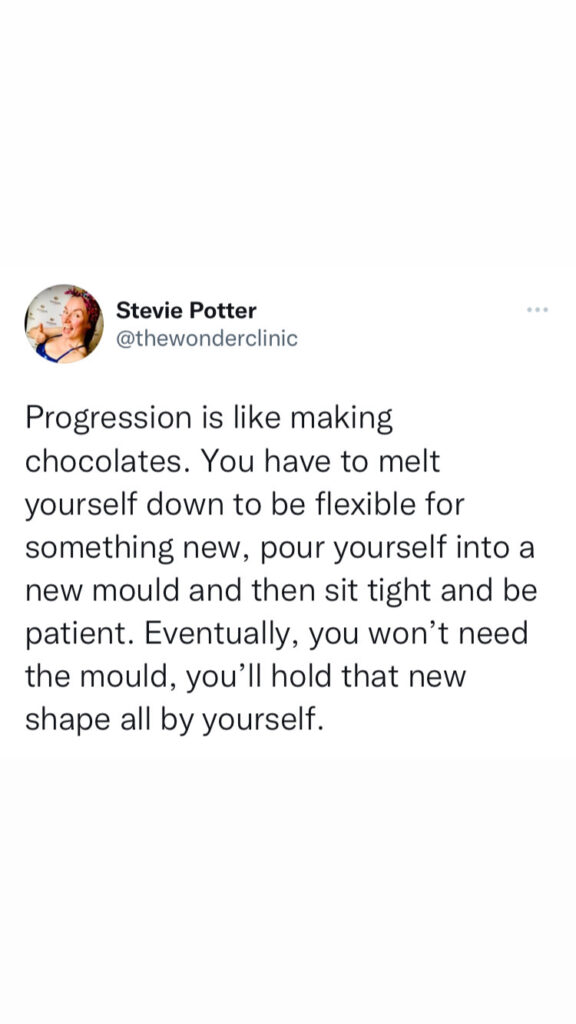Someone recently commented that they were doing well with their new healthy perspective, but they didn’t want to “put pressure” on themselves so didn’t want to show up to some workshops I was hosting. No offence taken. But my reply? “It’s not pressure. It’s accountability.”
Let’s analyse what “putting pressure” on yourself actually means. For me, it’s the application of force. This could be positive or negative. Loading any object with too much force, will eventually cause it to break; this applies to the physical body as well as your mental state. Now in order to see any kind of change, be that good or bad, we need to apply some kind of force; enough to deform and change an object but not enough to break it. The same applies to people and we need to apply some kind of stimulus to see change. So naturally, even when we change for good, we’re going to experience some kind of “pressure”.
Not showing up isn’t about pressure, it’s about accountability. Not getting help, not taking the steps, not making the choices and action steps to make the change happen, is taking the easy way out and actually AVOIDING pressure. A lot of people never vocalise their goals. Why? “Oh I don’t want to put pressure on myself, I’m not ready for other people to know, I just want to do it quietly in case I fail.” In case I fail. You’ve already doomed yourself. You’ve also admitted that you want to change but you don’t want to be uncomfortable, you don’t want to experience pressure.
I recently posted a tweet:

You need some sort of uncomfortable process to change. It doesn’t happen easily. If you’re still, after all this time, looking for an easy way out, you’re going to spend the rest of your life being disappointed. It just doesn’t work like that.
Now that’s not to say you need to be depressed and uncomfortable permanently until you reach a goal and then everything stops. It means that you need to put a gentle, very small, very measured and planned deforming pressure onto yourself every single day in order to follow a plan for self development and improvement. It’s going to get uncomfortable sometimes. But stick with it. Think of yourself as being that mouldable product. If you’ve put in place all the goalsmashing plans you need and you’re following that plan, then you have nothing to worry about. You will achieve it. Because you planned it. But the hardest part? Enduring. Resilience. Understanding that change is not easy, it’s going to get uncomfortable and when it does, you must be okay with that.
As an endurance athlete, it’s not comfortable. In sprint triathlon, you’re performing at a solid 8-9/10 for the whole race. There’s moments where it creeps up to a 10 when you’re making moves on the competition. There is no part of it that makes me think “this is nice”, until it’s all over and I’ve achieved the goal. Other processes are more steady – an Ironman is a much lower intensity of work and pressure, but it’s constant, it builds, it drains you. But you must keep going when it gets painful, you can’t focus on how much longer it will hurt for.
So ask yourself, when you are not prepared to commit to a goal, to vocalise it, tell people about it, take action steps on it: Are you really committed at all…?
And if you’re not sure which part of you is letting you down on your health and fitness journey, start here and take the Super Human scorecard, to reveal EXACTLY what’s holding you back and help you to commit to change, today.
